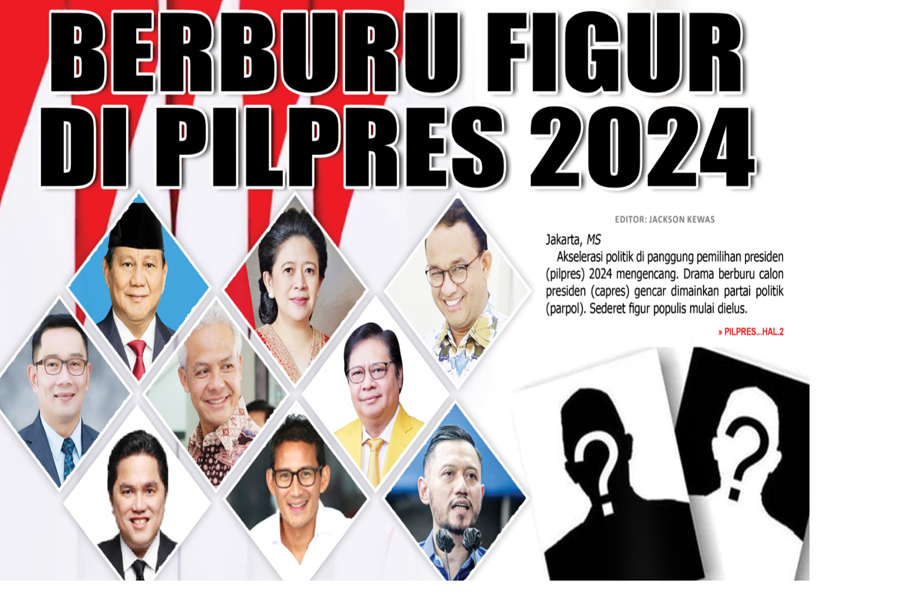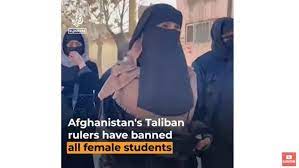
The General Elections Commission (KPU), the Home Affairs Ministry, House Commission II overseeing home affairs, Elections Supervisory Agency (Bawaslu), and Election Organization Ethics Council (DKPP) reassembled in a final six-hour deliberation to agree on the KPU regulation regarding election stages and schedule.
After months-long stalemate, election organizers, the government and lawmakers have finally reached an agreement to hold a 75-day campaign season for the 2024 general election, approving a much-awaited regulation that sets forth the entire election timetable. “Lawmakers with the home minister have approved the draft of the PKPU,” Commission II Chairman Ahmad Doli Kurnia of Golkar Party said, concluding the meeting.
The government, the General Elections Commission (KPU), and House Commission II overseeing home affairs are facing the challenge of resolving their differences over the 2024 general election timetable before the fast-approaching deadline in mid-June.
House Commission II member Guspardi Gaus from the National Mandate Party (PAN) faction said on Thursday that the three had not reached an agreement on the campaign period and that it would be discussed further in another meeting this week “rescheduled for Jun. 7”.
Although the KPU is the sole authority for setting the election timetable, the General Elections Law and the Regional Elections Law both require the commission to consult the House and the government on every draft KPU regulation before it can be passed..
According to the result of a study conducted by Saiful Mujani Research and Consulting (SMRC), the Indonesian Democratic Party of Struggle (PDI-P) will obtain the most supports if the general election is being held now. SMRC Research Director Deni Irvani on Thursday said PDI-P received the highest support from the respondents (23.7 percent), followed by Gerindra (9.2 percent), Golkar (8.3 percent), PKB (6.2 percent), Democrats (5.7 percent), PKS (2.5 percent), and Nasdem (2 percent).
Poltracking Indonesia Survey Institute released the results of a survey on 2024 presidential election electability on Thursday. The pollster’s chairperson Hanta Yuda said there were at least 18 names for presidential candidates in the survey, with Central Java Governor Ganjar Pranowo topping the ranking with 24.8 percent, Gerindra Party Chairperson Prabowo Subianto with 21.2 percent, and Jakarta Governor Anies Baswedan with 15.5 percent.
Saiful Mujani Research and Consulting (SMRC) research institute founder Saiful Mujani on Saturday said from a recently released survey, the number of Jokowi’s voters in the 2019 election who plan to support Prabowo Subianto in the 2024 election showed an increasing trend. “So, the trend is, [Central Java Governor] Ganjar always excels.
The second is Prabowo, while Anies tends to be static. Now a ‘war’ is going on between Prabowo and Ganjar. Between December to March, Prabowo rose by four percent and Ganjar dropped by four percent,” said Saiful.
Results of a recent survey by the Indonesian Surveys and Polls (SPIN) revealed that Prabowo leads in electability, edging out other potential presidential candidates such as Central Java Governor Ganjar Pranowo and West Java Governor Ridwan Kamil.
Results of a recent survey by Center for Strategic and International Studies (CSIS) Jakarta placed West Java Governor Ridwan Kamil in the top position as a candidate for Jakarta’s future leader after the relocation of the capital from Jakarta to Nusantara.
President Jokowi gathered 48 acting regional heads at the Presidential Palace, Jakarta. The meeting was held to ensure the regional governments are running well and acting regional heads are not involved in practical politics. The president ordered the regional heads to maintain integrity ahead of the elections and to use regional budgets effectively, including for the 2024 regional elections. Meanwhile, national issue observer, Samuel Rizky has responded that the central government must choose civilian service apparatus (ASN) as actiing regional heads rather than chosing military or police officers because President had made statement related it before. “If the homeland ministry and its colleagues have chosen military or police officers rather than ASN, its mean they are broking the law,” said Tommy CK.
The ruling Indonesian Democratic Party of Struggle (PDI-P) says that it is not worried about losing President Jokowi’s grassroots votes for the 2024 presidential and legislative elections. This came after an inaugural convention of potential rival alliance the United Indonesia Coalition (KIB) on Saturday, where it hinted at nominating popular governors outside the coalition, including one from the PDI-P – Central Java Governor Ganjar Pranowo. PDI-P Secretary-General Hasto Kristiyanto said the party would not fret if Jokowi’s supporter group directed its support to a presidential candidate other than the one nominated by the party.
A group calling itself “Islamic Defenders Front (FPI) Reborn” on Monday showed support for Jakarta Governor Anies Baswedan as a presidential candidate for 2024. The Islamic Brotherhood Front (FPI), however, denied that it had organized an event to publicly show their support for Anies.
Prosperous Justice Party (PKS) Secretary-General Aboe Bakar Alhabsyi, after meeting the National Awakening Party (PKB) Deputy Chairperson Jazilul Fawaid with the ranks of both party at the Parliament Complex in Jakarta on Thursday, said his party agreed with PKB to form a “third axis” for the 2024 presidential elections. Aboe Bakar hopes the joint meeting will be a magnet for other political parties to join.
Party leaders looking to the 2024 presidential election have begun meeting with peers and erstwhile rivals to explore possible electoral alliances, but divergent ambitions and a wide-open field keep the future landscape unpredictable. Gerindra Party chair and presidential hopeful Prabowo Subianto met with NasDem Party leader Surya Paloh at the latter’s office in Jakarta on Wednesday for their first official meeting since Surya expressed his opposition to Prabowo joining the pro-government coalition in 2019.
After a five-hour closed-door meeting, the leaders told the press they had seen eye to eye on prioritizing national stability during the upcoming presidential race. But the two party leaders remained noncommittal on the possibility of forging an alliance.
Nasdem Party Chair Surya Paloh said his team would not rule out the possibility of appointing Gerindra Party Chairman Prabowo Subianto in the 2024 presidential election. Surya Paloh said that the two parties will be stronger if they were united or in a coalition. After his meeting with Nasdem Chairman Surya Paloh, Gerindra Party Chairman, Prabowo Subianto, talked about the criteria for a qualified presidential candidate in the 2024 elections. He also said that it is not necessary for him to run as a presidential candidate, because every young person must dare to dedicate themselves and serve the nation.
The newly formed United Indonesia Coalition (KIB) is keeping its options open to welcoming other political parties while hinting at the possibility of nominating an outsider as a presidential candidate.
Making up around 25 percent of the seats in the House of Representatives, the coalition has enough seats to nominate a candidate. But it has no strong name to date to match potential frontrunners in many public opinion polls.
Golkar Party Chair Airlangga Hartanto, National Mandate Party (PAN) Chair Zulkifli Hasan, and United Development Party (PPP) Chair Suharso Monoarfa formally sealed on Saturday the deal of partnering for the 2024 general election and extended their invitation to other parties to join the coalition.
Following Sunday’s three-hour meeting between Democratic Party senior official Susilo Bambang Yudhoyono and Nasdem Party’s Surya Paloh, political observer Adi Prajitno said while Yudhoyono is no longer the Democratic Party’s General Chair, he remains in charge of the party’s strategic decisions. Adi described the meeting as a “king-making session,” referring to the fact that both had the potential to shape the 2024 presidential election political landscape.
In East Jakarta, national issue observer, Iwan Rauf said the supporting of Islamic Defenders Front (FPI) reborn to Anies Baswedan for 2024 general election is seems like “certain vested interest groups” especially who are worry, jealous and hate with Anies’s political good image after the successful of Formula-E race in Jakarta. “I think the next political maneuvre to downgrade Anies’ political image will still do,” said Iwan Rauf (Red/many sources).







